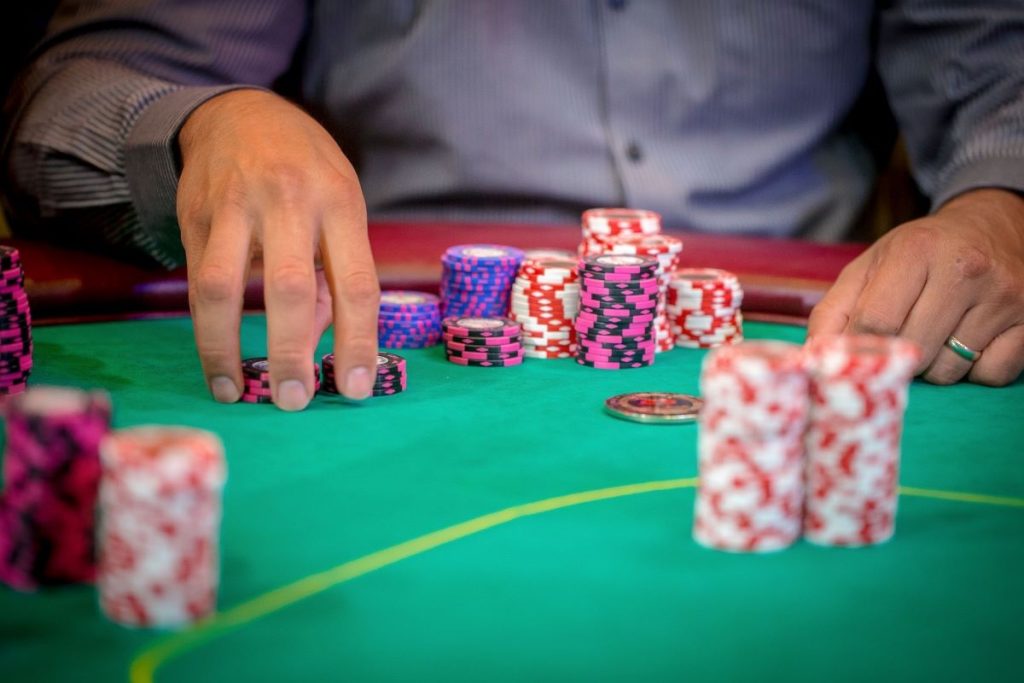On the other hand, calling a bet when you miss on a bluff is incredibly frustrating. These extreme highs and lows are an illustration of how poker works as a whole. In live poker, you will have far more opportunities to accurately assess the strength of your opponent. Instead of just playing the odds, you’ll be able to use all sorts of cues and other contextual information that you simply wouldn’t have access to online poker.
Bluffing seems to be a chronic condition in live poker. There are some players who live for the thrill of winning a big pot with a small hand. Although there is no denying that it is a rush to win a big pot with a small hand, but it will hardly make up for all the money lost when you are wrong. The key to bluffing pick up is to make sure you are not bluffing at players who love to bluff and, at the same time, make sure you are not doing it yourself. If you fall victim to a bluff catching as both the bettor and the payer, you will lose a terrible lot of money in the long run. The purpose of this article is to teach you when it is okay to bluff and when it is not.
Defining a good situation

The first thing you must understand about call bluffs is that you need to be totally sure of your reads. You may not be sure where you are at times, but you are still probably working with some margin for error. When it comes to bluff catching, however, you must have a very strong feeling for where you are in the hand. If you are calling someone with top pair, you can win against a value bet or a bluff. When you call someone down with bottom pair, you win against a bluff only. Once you have a sound read in place, the next step is to determine if your call makes sense.
Calling Bluffs
Just because you’ve read someone well doesn’t necessarily mean you should pay off their bet. The numbers still need to add up for them to create a profitable situation for you.
Putting the Story Together

Putting the puzzle together is what will allow you to build accurate reads that end up winning hands. You need to be able to trace yourself back to the pre-flop action to where you are now. Did your opponent play the hand as if you were? Strong? Were they acting a little too strong to where it seemed planned? Does a bluff make more sense than a big hand given the action? These are the types of questions you need to have asking yourself.
In this case, we would be waiting for a check on the river, even though the previous action does not make it seem that this is a likely outcome. The bet on the river then comes and you still have the same low hand that you had on the flop.
The next most common bluff capture point is created by some subsequent action. What this means is that a hand can be played relatively slowly before suddenly coming into action around the turn. When more money is coming into the pot, players will decide that their previously insignificant hands are now worth playing all the way to the river. It’s something you’ll notice over and over again: players who aren’t interested in your hands or your opponent’s hands themselves, but at the same time quite intrigued by the money that can potentially be won. If you were to bet and then check on the river with a mediocre hand, but end up getting the check raised on the turn, you will find yourself in a very tricky position.
On the one hand, you would not expect this aggression which may lead you to believe that your hand is ahead. On the other hand, there is a good chance that you will be facing even more aggression on the river, which means that you will need to put even more money on the line.
You always need to keep the long term repercussions of the bluff catching in mind. It will seem very easy to tie yourself together in a hand by calling a bet on the flop, and before you know it you are calling on a river shove. You can help prevent this in tight situations. Live poker is the best arena in which to play very straight poker (at least up to mid-limits). By repeatedly trying to catch bluffs, you are making the game much more challenging and risky than it really needs to be.


